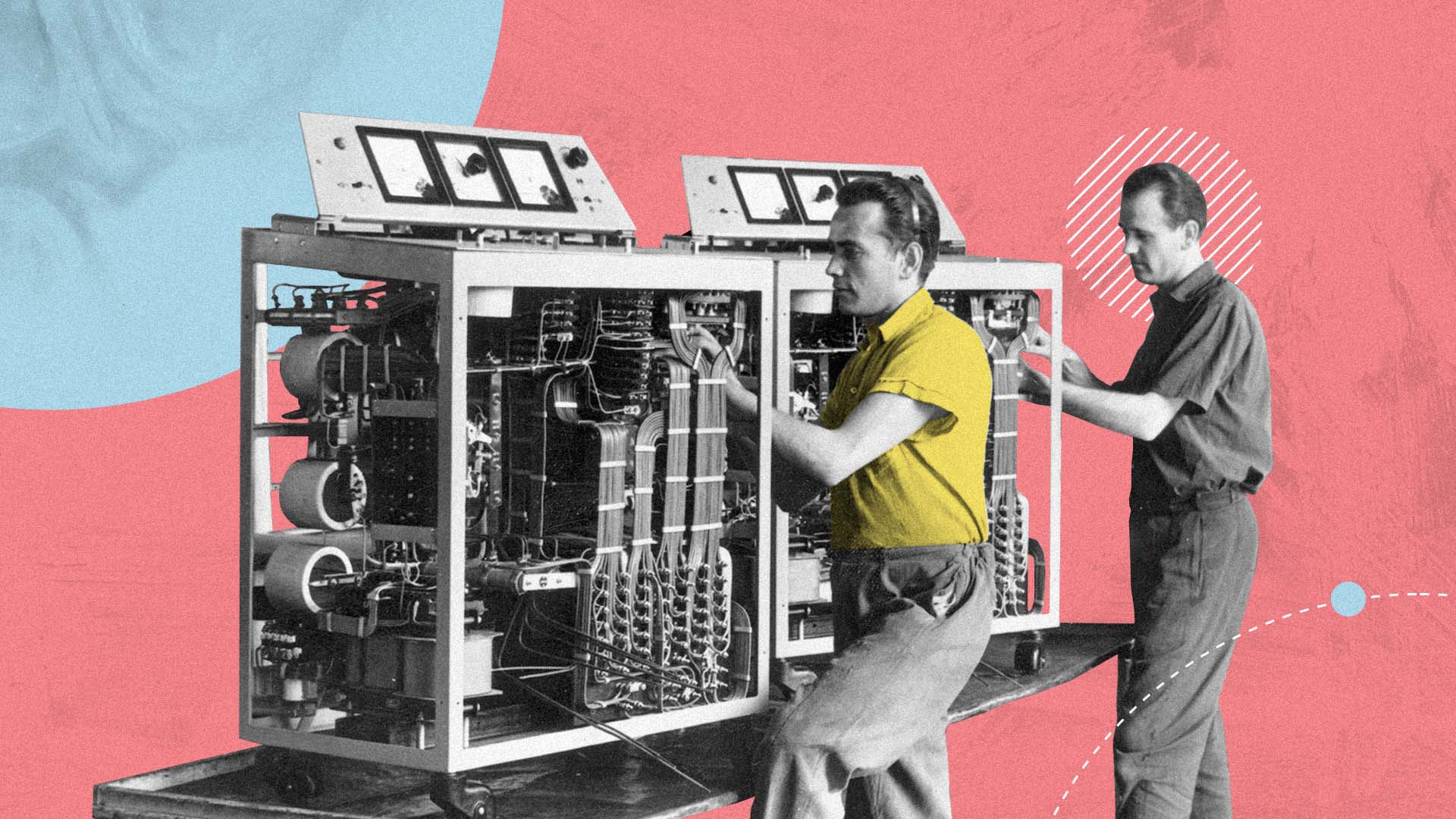What it’s like to be a DevOps engineer at Boldare?
DevOps engineers are a lot like bass guitar players: you can’t hear them, but every successful team should have one. They implement a methodology aimed at improving digital products and their development with a combination of tools, philosophies, and practices. In this article, we will tell you all about their involvement at the different stages of product development, including product release and troubleshooting.

Table of contents
What is the job of a Development and IT operations engineer?
DevOps is short for Development and IT operations. A DevOps engineer is “a person who contributes to the development of the digital product by taking care of the tools and processes used by programmers.”
DevOps engineers make programmers’ life easier by automating some of the mundane and repetitive tasks and processes. They improve the overall view of the system’s health by introducing appropriate monitoring mechanisms and automatic mechanisms to scale the application/guarantee availability.
What does a DevOps engineer do during product development?
At Boldare, development and operations engineers act as consultants who support the development of a product and help solve problems. Their involvement takes place at every product development phase - from beginning to release. Here’s how it happens:
Beginning of product development
At the initial stage of product development, the DevOps engineer creates an app infrastructure that meets both development and client needs, without insisting on any particular frameworks on the back-end or front-end. They also help with the architecture of the app, environmental variables, and the selection of appropriate technology.
During development
Once the testing environment is ready, DevOps engineers prepare the app for the cloud environment. They run the app in a testing environment and help troubleshoot any issues with the product.
DevOps engineers also build the production environment, but only a few weeks before the product’s release. Doing so sooner would generate additional costs, such as subscription fees for databases and virtual machines.
Release
At this stage, the DevOps engineer’s job is to advise the client on how to best handle their product’s launch. That depends on whether the product release is going to be loud or quiet.
Loud releases are usually heavily advertised, so the job might be to prepare multiple servers to handle significant traffic on release day. Quiet releases are easier - the app is launched on the app store, and the user base grows gradually.
But, there is a third option: some clients decide to release their product in a single country and then move on to the next. In that scenario, DevOps engineers can suggest setting up a multi-regional back-end (appropriate for working in multiple countries) and call attention to appropriate data privacy legislation.
After release
Once the product is released, the DevOps engineer works on analysis, maintenance, improvements to workflows, infrastructure, and sometimes even the development of the product.
They are also available for troubleshooting. If a back-end developer spots a problem, they can always call the DevOps engineer involved in that product. And even if that person is not available, every product built at Boldare follows the same standard practices, which makes it easier for any DevOps engineer to solve the problem.
In some cases, the DevOps engineer might temporarily leave the product after its release. But even then, they are still involved in its maintenance, such as updating the infrastructures critical for app security. Some problems that were previously unimportant tend to resurface during the scaling phase and need to be solved promptly.
Leaving the product depends on how much the DevOps engineer was able to do in the early stages of development: the more they did at the beginning, the less work there is for them after release.
An example of troubleshooting
For an experienced DevOps engineer, pinpointing the potential source of a problem can come down to a quick chat - even if they weren’t involved in the development of the product. For example, if a product’s email sending feature is not working, that chat could go like this:
- What cloud platform does the product use?
- Amazon Web Services.
- Where is the app?
- On Kubernetes (or Virtual Machine)
At this point, the DevOps engineer checks AWS for app production logs and whether the person reporting the issue has access to them. After that, they ask:
- What email provider is it using?
- AWS’s SES
And that might be the entire chat. With that information, any DevOps engineer working at Boldare is ready to get on a call with the developer and diagnose the issue.
<RelatedArticle title=””How to choose a software development company?/>
What’s it like to be a Development and IT operations engineer?
DevOps engineers are often overlooked. In some cases, they are involved in the product for the first two weeks of development and then called only for troubleshooting. From a budgetary perspective, it’s a missed opportunity, as their process automatization speeds up the development and saves on cloud costs.
At Boldare, development and operations engineers take on many roles. They act as consultants, but also as architects who help us to choose the right technologies. Later, as the product matures, they help with its security, debugging, and hosting cost management.
Being a DevOps engineer at Boldare can be challenging, yet fulfilling, and includes being part of a product team that benefits the business in the long run. So, if you are looking for ways to secure the success of your digital product, contact us and see what our DevOps consultants can do for you!
Share this article:








